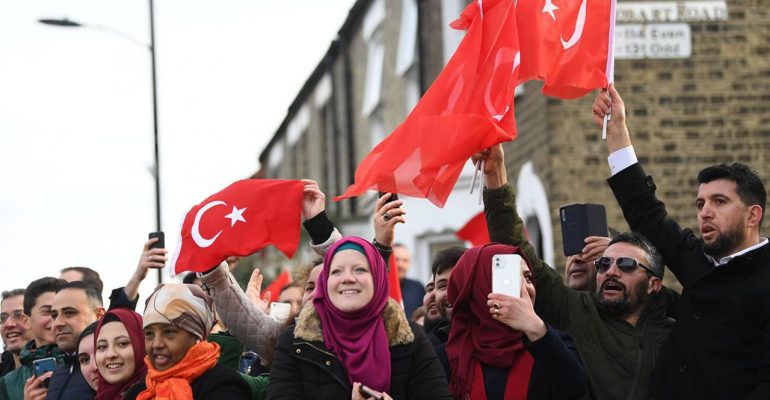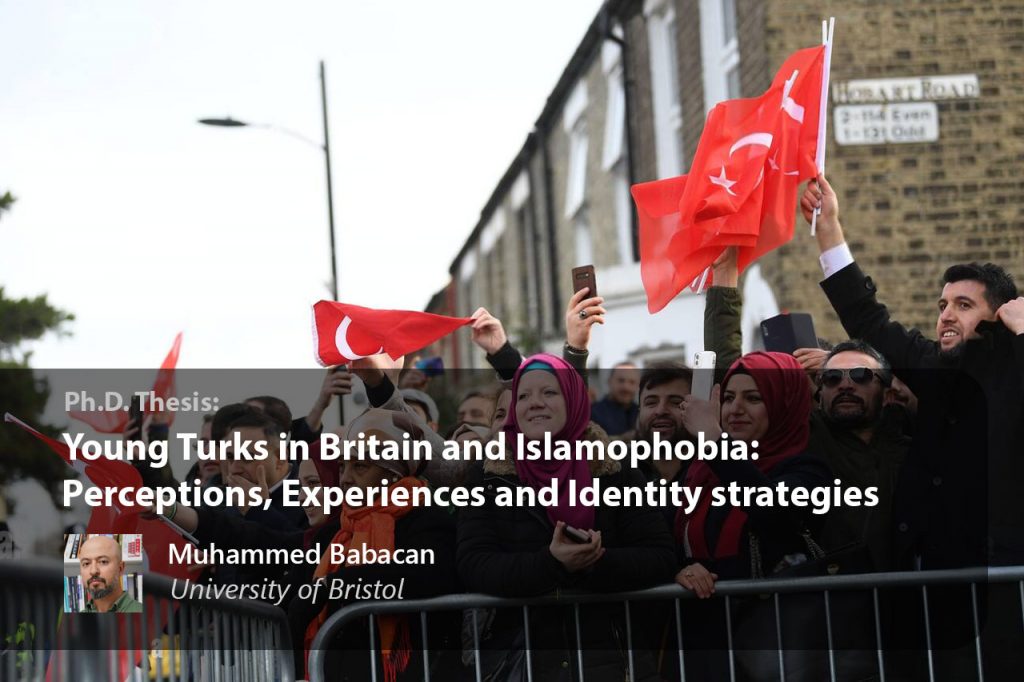PhD Thesis: “Young Turks in Britain and Islamophobia: Perceptions, Experiences and Identity strategies”
November 27, 2022 2024-03-18 1:31PhD Thesis: “Young Turks in Britain and Islamophobia: Perceptions, Experiences and Identity strategies”

PhD Thesis: “Young Turks in Britain and Islamophobia: Perceptions, Experiences and Identity strategies”
PhD Thesis: “Young Turks in Britain and Islamophobia: Perceptions, Experiences and Identity strategies”
Author: Muhammed Babacan
University: University of Bristol
Date of Award: 2022
Supervisor: Tariq Modood, Jon Fox
Abstract:
There is mounting evidence to suggest that young Muslims in the UK have been victims of Islamophobia. The evidence of Islamophobia, however, is not necessarily the best predictor of actual ways in which young Muslims in Britain themselves describe and valorize their perceptions and experiences of and further responses to Islamophobia. While scholarship on Islamophobia has focused heavily on its meaning, the roles of media and politicians, and, in part, the experiences of Muslims, it has not paid much attention to the supposed victims of Islamophobia and its neglect of this view has the effect of objectifying and homogenizing their victimhood. In addition, Muslim communities in Britain are heterogeneous and thus have distinctive characteristics. Therefore, they may perceive, experience, and response to Islamophobia in different ways. Taking into account the British context and the distinctive legacies within the British Muslim communities, this thesis examines Islamophobia from the perspective of one of its supposed victims that has been so far under-researched, i.e., young Turks in Britain.
The research aims to offer conceptual contributions to the current literature on Islamophobia and young Muslims in the UK. Firstly, it helps further develop literature on Islamophobia that addresses the roles of media and politicians from the perspectives of its supposed victims. Secondly, this thesis contributes to literature on the manifestation of Islamophobia and the racialization process of Muslims. Thirdly and more importantly, it provides a novel contribution to the literature on what kind of identity strategies the supposed victims of Islamophobia develop in response to Islamophobia. To achieve these contributions, semi-structured in-depth interviews (N=39) were conducted amongst 18-35-year-olds in London. Themes were generated through a data-driven inductive approach. This thesis has made clear that although some young Turks reported that Turks in Britain experience more subtle forms of Islamophobia which I call “everyday Islamophobia”, the vast majority of the respondents developed various discursive identity practices that culminated in efforts to demonstrate that Islamophobia is not an issue that concerns themselves or Turkish people in general.
Source: British Library EThOS









